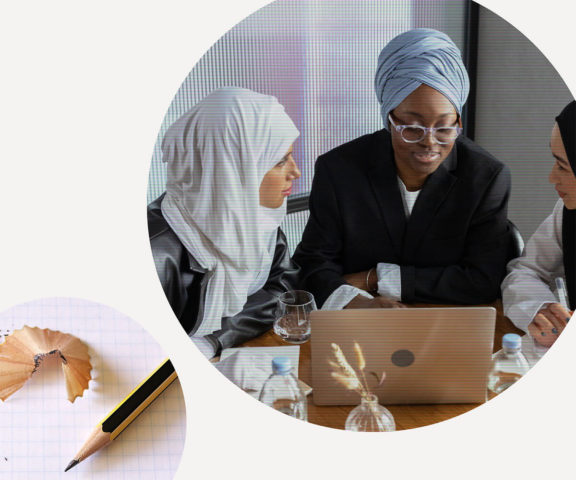
Mettre fin au racisme et à la haine : Votre droit. Votre responsabilité
Ce Qui Se Passe en Colombie-Britannique
Speak up and act up: Burnaby coalition interrupts racism one workshop at a time
Posted on October 19, 2021
A.H. still remembers the day when her daughter came home with a story of her English teacher telling a diverse group of grade-schoolers this: “Don’t work so hard. You will never learn English.”
On that day, A.H. instantly knew that she would have to learn to stand up for her children, her family and herself. But being a hijabi woman from Jordan, taking on this responsibility alone can be crushing. “I find that it’s hard for people here to accept anyone outside of their reality,” says A.H., who is a community worker in Burnaby. “I tell clients who experience racism and hate: ‘Don’t be silent; learn to speak up.’”
To her and other members of Burnaby Together – a coalition group led by Burnaby Family Life, the Resilience BC Anti-Racism Network member in the city – tackling racism and hate through education is important. The coalition is composed of community partners who have been working collaboratively since 2007 to make Burnaby a welcoming and inclusive community for all.
In November 2020, Burnaby Together held a town hall, “BIPOC voices on racism and how to be anti-racist.” It was an online panel led by decolonial facilitator Ta7talíya Michelle Nahanee and Equity, Diversity and Inclusion specialist Dr. Moussa Magassa. They discussed racism and its impact on communities and actions to be taken to dismantle everyday and structural racism.
“When the stereotype is negative, you create a negative bias and that’s difficult to heal from,” says Magassa. That’s why holding these spaces for discussion and organizing anti-racism workshops and bystander trainings can build a sense of shared responsibility and accountability.
Burnaby Together Coordinator Ana Maria Bustamante, who organized the series of trainings and workshops last year, says newcomers must be made aware of racism as an underlying reality in Canada. “I was an immigrant 20 years ago; I fought for my youngest daughter after an incident she experienced in school. We come from cultures where we wait until we are called to speak or until it’s our turn to talk – here, we need to take action and stand up for ourselves.”
Bustamante and the coalition are among those at the forefront of fighting racism and hate in Burnaby, the third largest city in British Columbia. It is a community that’s growing more diverse each year, with more than half of its population identifying as a “visible minority,” according to Statistics Canada.
Through their community network response protocol designed to help the community respond to incidents of racism and hate — the wider public will be equipped with tools to report or seek support when they experience or witness incidents of racism and hate. The protocol and the anti-racism resources that go with it also provide a critical framework for understanding and ending systemic racism.
That’s what A.H. has discovered as she learned about the roots of racism and colonialism in Canada. “If someone would tell me to go back to my country, I would say, ‘When you go, I will go. Everyone is a settler and/or immigrant here. This land belongs to Indigenous peoples.’”
